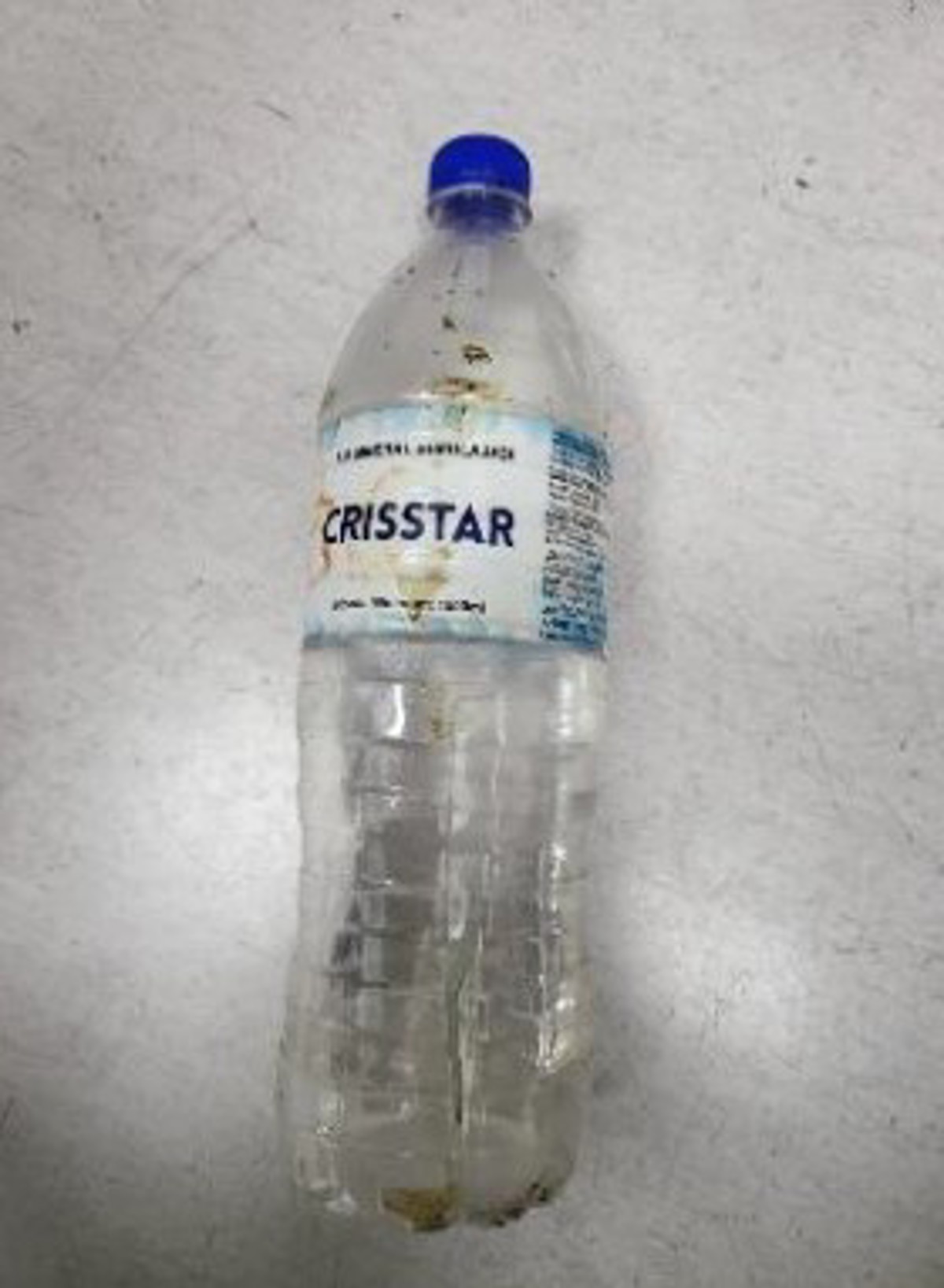Accidental swallowing of paint thinners
- Safety Flash
- Published on 13 December 2022
- Generated on 28 February 2026
- IMCA SF 28/22
- 2 minute read
Jump to:
A crew member thought they were drinking water from a used mineral water bottle and actually drank paint thinners by mistake.
What happened?
The content of the bottle was not marked, and the bottle was incorrect for the temporary storage of the chemical.
What went wrong?
A crew member, making stencils in the workshop, cleaned the stencils using paint thinners, which had been poured from the original clearly marked and labelled container into a used mineral water bottle. Upon completion, the unlabelled mineral water bottle containing the thinners was left in the workshop in a place where drinking water bottles were often left. The following day another crew member picked up the bottle and drank from it. As a precautionary measure this crew member was sent ashore for medical examination which revealed no consequences.

What were the causes?
- The risks of using a mineral water bottle for a chemical were not appreciated.
- There were no dedicated small bottles/containers on board – an old water bottle had to be used to hold a limited amount of the thinners.
- The bottle containing the chemical product was not marked with its temporary content.
- Clear liquid, in appearance very similar to water, was stored in a water bottle and could therefore be easily confused with the original content.
- Poor housekeeping: at the end of the task, the chemical product remaining in the water bottle was not disposed of nor returned to the original container, but was left at the workstation.
An inspection confirmed that there were no other unmarked containers in use on board.
Lessons to be learned:
IMCA notes that this should not be happening, but unfortunately is a repeated scenario that other IMCA members have had to deal with in recent times.
- If it is necessary to decant chemicals from their original containers: always decant the chemicals in the chemical storage area, use a container in good condition and of type appropriate for the chemical – never use bottles normally used for, or associated with, drinking water.
- Ensure there are some appropriate containers or bottles for this kind of task.
- Ensure that chemicals and hazardous substances are stored appropriately and not left out – tidy up afterwards!
Related Safety Flashes
-
IMCA SF 12/18
14 June 2018
-
-
IMCA SF 29/17
15 November 2017
-
-
IMCA SF 29/17
15 November 2017
-
-
IMCA SF 13/17
2 June 2017
-
-
IMCA SF 04/16
5 February 2016
IMCA Safety Flashes summarise key safety matters and incidents, allowing lessons to be more easily learnt for the benefit of the entire offshore industry.
The effectiveness of the IMCA Safety Flash system depends on the industry sharing information and so avoiding repeat incidents. Incidents are classified according to IOGP's Life Saving Rules.
All information is anonymised or sanitised, as appropriate, and warnings for graphic content included where possible.
IMCA makes every effort to ensure both the accuracy and reliability of the information shared, but is not be liable for any guidance and/or recommendation and/or statement herein contained.
The information contained in this document does not fulfil or replace any individual's or Member's legal, regulatory or other duties or obligations in respect of their operations. Individuals and Members remain solely responsible for the safe, lawful and proper conduct of their operations.
Share your safety incidents with IMCA online. Sign-up to receive Safety Flashes straight to your email.